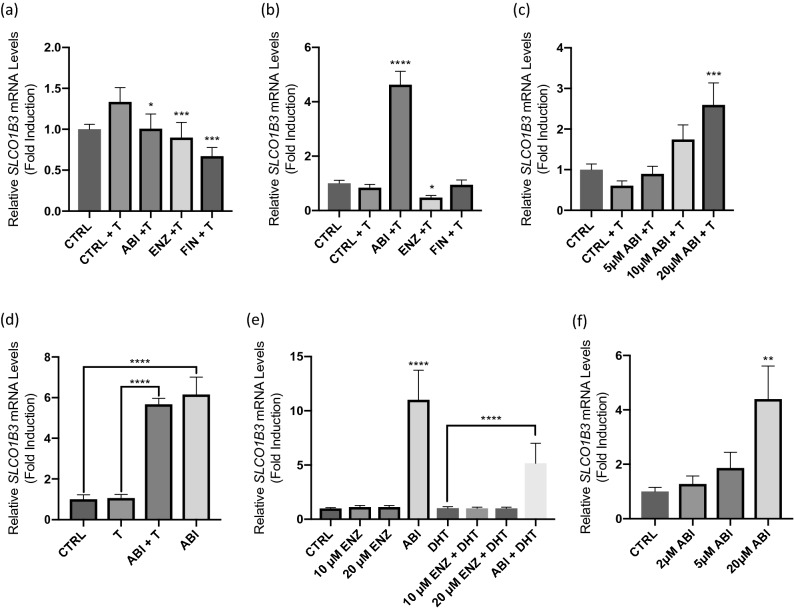Figure 1.
AR-positive prostate cancer cell lines (LNCaP, 22Rv1, and VCaP) were treated with 1 nM testosterone and three prostate cancer drugs abiraterone (ABI), enzalutamide (ENZ), or finasteride (FIN) for 24 h. RNA was extracted and assessed for changes in SLCO1B3 expression using qPCR. Gene expression was normalized to expression of β-actin. (a) All treatment groups produced a significant reduction in its expression at 72 h in LNCaP Cells. (b) Abiraterone produced a highly significant upregulation of SLCO1B3 in 22Rv1 cells. (c) Concentration-dependent effect of abiraterone (ABI) significantly increased the expression of SLCO1B3. 22Rv1 cells were treated in phenol red-free, charcoal-stripped media with abiraterone (ABI), enzalutamide (ENZ) in the presence or absence of (d) 1 nM testosterone (T) or (e) 1 nM dihydrotestosterone (DHT) for 24 h. 22Rv1 cells were also treated with a higher dose (20 μM) of ENZ to confirm that ENZ treatment has no effect on SLCO1B3 expression. (f) The AR-positive prostate cancer cell line, VCaP, was treated with abiraterone at increasing concentrations for 24 h. ABI increased SLCO1B3 in a dose-dependent manner. RNA was harvested from cells after 24 h of treatment and assessed for changes in SLCO1B3 expression using qPCR analysis. Gene expression was normalized to expression of β-actin. Treatment in AR-negative PC3 cells did not affect SLCO1B3 expression (data not shown). Statistical tests were performed against CRTL + T for A-C. These data are the result of three independent experiments. *P < 0.05, **P < 0.001, ***P < 0.0001, ****P < 0.00001.

